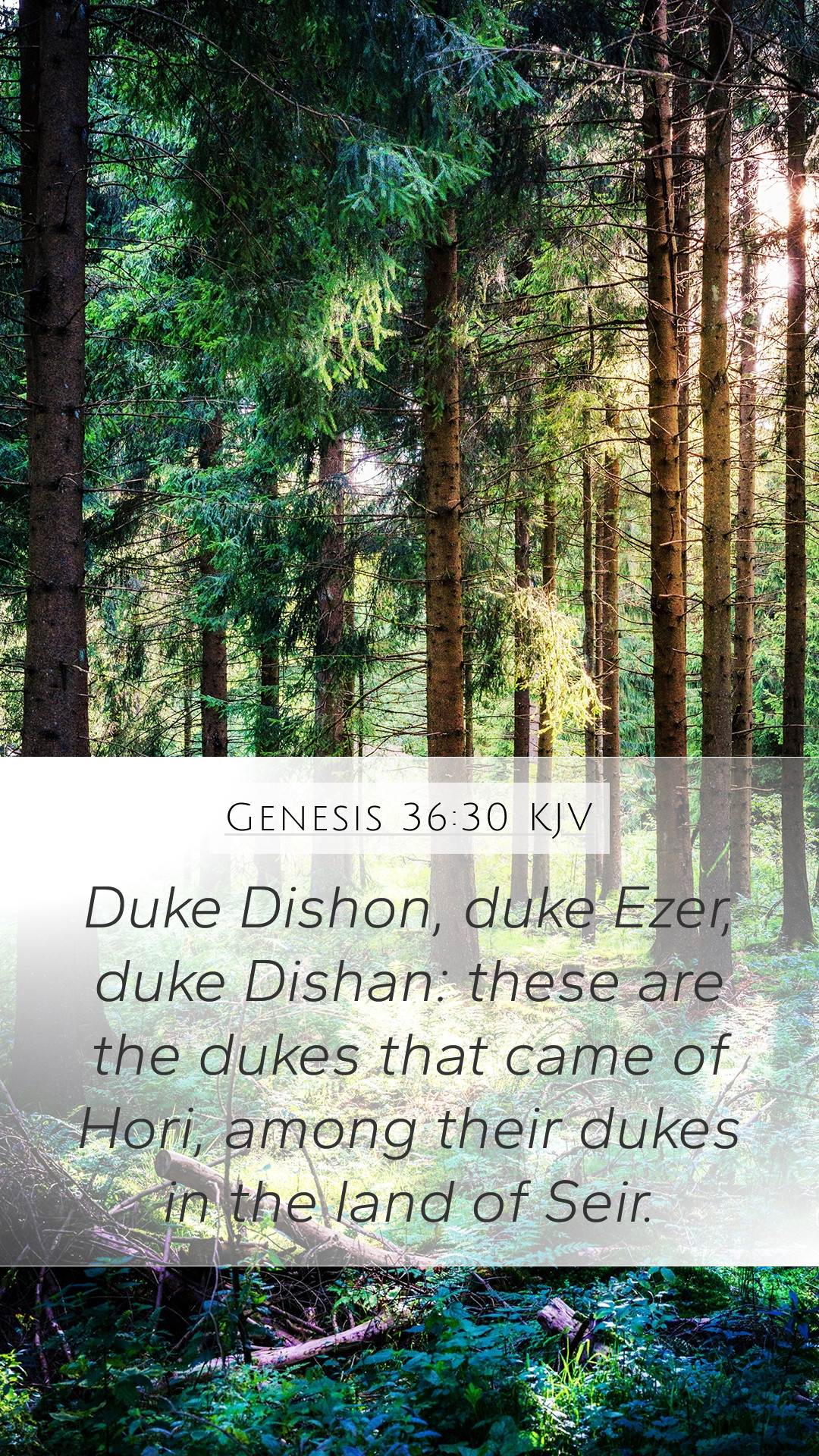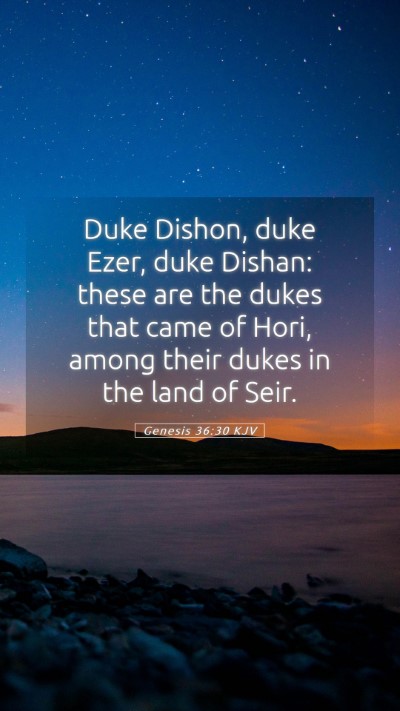Bible Verse Meaning: Genesis 36:30
Genesis 36:30 states:
"These are the rulers of the land of Edom, according to their habitations in the land of their possession: he is the son of a Horite, the father of the inhabitants of the land." (Genesis 36:30, KJV)
Overview
This verse is part of a genealogical account that highlights the rulers descended from Esau in the land of Edom. It provides insights into the Edomite society and its tribal divisions.
Commentary Insights
- Matthew Henry's Commentary:
Henry emphasizes the importance of understanding the structure of tribal leadership in Edom, illustrating how Esau's family became significant in their respective territories. He notes the significance of "rulers" as indicating a well-organized society.
- Albert Barnes' Notes:
Barnes reflects on the historical context of Edom's formation, explaining that the term "Horite" refers to a people type known to inhabit mountainous regions before the descendants of Esau settled there. This implies continuity and change in the land’s demographics.
- Adam Clarke's Commentary:
Clarke elaborates on the phrase "rulers of the land of Edom," drawing attention to the political structures that governed the Edomites, and how Esau’s lineage shaped the political framework of this region.
Contextual Significance
This passage provides a genealogical record that connects historical narratives from Genesis to the later mentions of Edom throughout the Bible. It shows the enduring nature of family lineage and its implications for tribal and geopolitical identity.
Connection to Broader Themes
- Understanding Scripture: This verse demonstrates how genealogies in the Bible remind us of God's faithfulness through different families and nations across history.
- Bible Verse Commentary: Such verses emphasize the relevance of studying Scripture in relationship to its historical milieu and the implications on contemporary applications.
- Bible Study Insights: The genealogical records invite deeper reflection on God's promises and covenants extended through individual legacies and nations.
Application of the Verse
Contemplating Genesis 36:30 fosters deeper understanding of:
- Historical Context: Insight into the Edomite society illustrates the broader historical narratives present in the Bible.
- Cultural Identity: The mention of "Horites" serves as a reminder of how cultures interact and coexist through history.
- Tribal Leadership: This verse can parallel discussions about leadership and governance in today's contexts.
Related Bible Verses
For further study, consider these cross-references that provide additional context to Genesis 36:30:
- Genesis 25:30 - The identity and significance of Esau.
- Numbers 20:14-21 - The relationship between Israel and Edom.
- Obadiah 1:2-4 - A prophecy against Edom, highlighting its fate.
Conclusion
This exploration into Genesis 36:30 assists in understanding the genealogical context of Scripture and encourages one to engage with the broader themes of leadership, identity, and God's faithfulness throughout the generations. Each Bible study brings us closer to understanding our own place within this expansive narrative of creation and divine promise.


